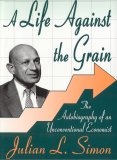
"When I started looking at the numbers, I saw a lot of mistakes," says Xavier Sala-i-Martin, an economist at Columbia. Some were departures from standard economic procedures, like not correcting for price levels from country to country.The truth is that things are getting better even for the poor:
"Some agencies didn't adjust for the fact that Ethiopia is cheaper than the U.S.," he said. "Some of them were hiding numbers that we know exist." For instance, the report included data from only 19 of the 29 industrialized countries then in the Organization for Economic Cooperation and Development.
In 1970, global income distribution peaked at about $1,000 in today's dollars, a common measure of poverty ($2 a day in 1985 dollars). In 1998, by contrast, the largest number of people earned about $8,000 ó a standard of living equivalent to Portugal's.I'm sure leftists everywhere are celebrating.
"That's what I call a new world middle class," says Professor Sala-i-Martin. It is mostly made up of the top 40 percent of Chinese and Indians, and the effect of their economic rise is big.
...the Fed paper concludes that Japanís experience implies that the US needs a very aggressive further easing of monetary policy, and yet more fiscal stimulus. My fear is that such policies would only exacerbate the imbalances in the US economy that my colleagues on the US economic team have discussed so cogently. Moreover, the political convenience of the Fed paperís recommendation is intergalactic. It is a lot easier to print money and to spend money than to reform accounting systems, to jail criminals, and to face angry voters (who, by the way, just loved the US bubble on the way up but want to blame someone else for the collapse). This political convenience alone should at least make one skeptical of expansionist recommendations. In my opinion, neither monetary nor fiscal expansion would contribute to the heavy lifting that the US must do, in order to reduce its structural imbalances. Macro policies will hasten the adjustments if and only if proper micro policies are taken. In short, the lesson from Japan is that macroeconomic convenience is no substitute for microeconomic sweat.I concur.
Although terrorists use violence to transmit their "political messages," much can be learned by comparing them to non-violent interest groups. One lesson this comparison teaches is that anti-terrorism policies have their limits, just as do policies that aim to curtail the alleged excesses of peaceful groups.Spotted on Readjacobs.com.
Montgomery County's "living wage" law applies to workers who provide government services. It will raise the cost of those services, which will reduce the capacity of the government to provide them. Since many government services go to aid the poor, the "living wage" law will have the same effect on the poor as a broad-based budget cut.